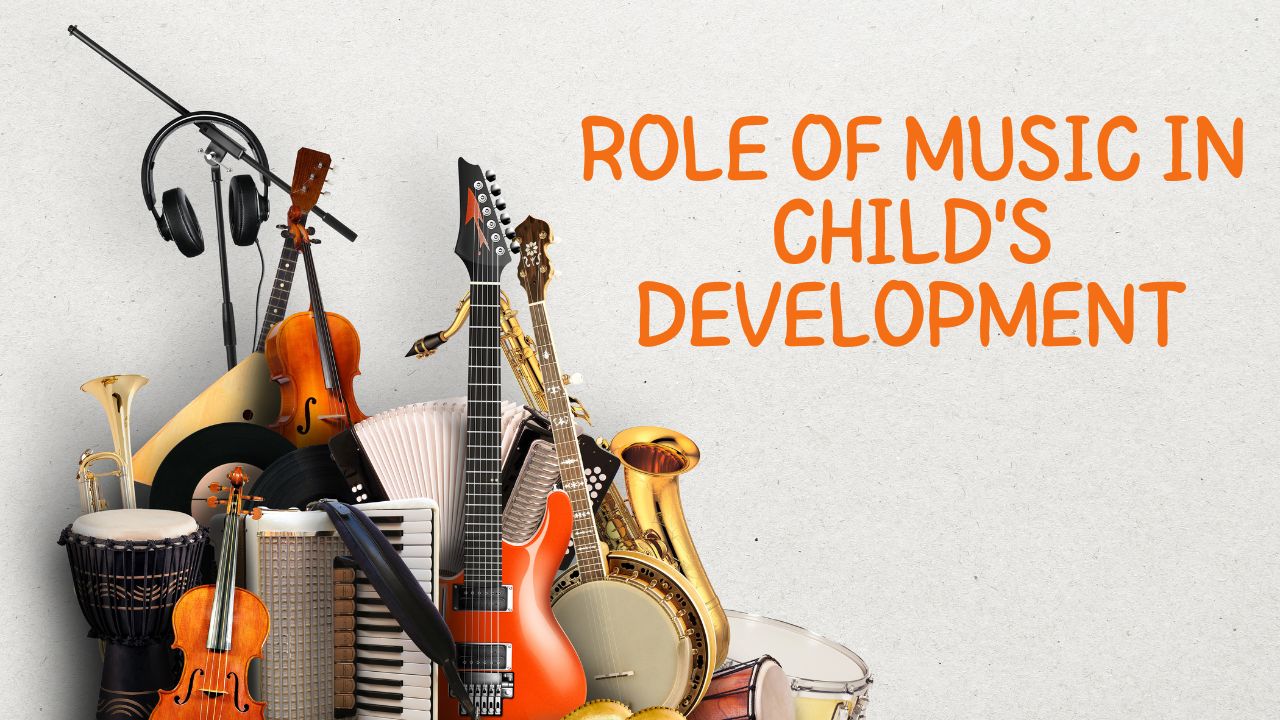
Let me help you recall those soothing lullabies your grandmother used to sing while putting you to sleep in your childhood. And the rhymes mummy used to sing for you. Even at preschool, almost everything was a song. We used to love the rhymes singing, and dancing to those tunes.
Have you ever thought about why almost everything was associated with music? There is a scientific reason behind this. We all know music is soothing and helps in relaxing the mind. But there is something beyond this. It is in the first three years of life a child forms the brain connections that will lay the foundation for speech, language, motor, and cognitive skills. Musical experiences are an important way to help children create these pathways, also called neural connections.
Not only music is helping the child to build these neural connections but ignites all areas of child development such as motor skills, picking up sounds, language, and words faster, and helps the body and mind work together. It also accelerates reading skills which will help the child in the long run.
Here are the reasons why music is essential for early childhood development:
Music boosts communication and imagination - Babies respond to sounds and music quickly in comparison to speech. Infants try to mimic the sounds which eventually helps in picking communication faster.
Music boosts IQ - As mentioned earlier in this article, music is a great way for a child to build neural pathways faster. Also, as the child grows, if the child is involved in learning a musical instrument or any other form of music, it is scientifically proven that compared to other children, kids involved in musical activities have better IQs.
Music cultivates patience in kids - Learning any form of music requires patience. A child learning music or any musical instrument develops patience and perseverance. This will help the child tackle more complex challenges in life.
Music uplifts emotional development - Self-expression, creativity, self-esteem, and empathy are a few qualities that music helps a child to develop. Science has proved that a child inclined towards music has fewer anxiety issues.
Music improves coordination - A child learning a musical instrument has the better hand and eye coordination. This accelerates the brain to work faster and thus the overall coordination.
Music improves listening skills - The soothing nature of the music calms the brain of the listener. Sometimes, we learn a song in an unknown language. That is because of the rhythm and music that impact our minds. We tend to listen to the song again and again which boosts our concentration. It further enhances listening skills.
Music uplifts your mood - Music not only soothes you but is a mood lifter too. Have you noticed this? When a person, irrespective of age and gender, when listens to good music tends to dance to the beats. That's the magic of the music. Hence music is the best mood lifter for your child.